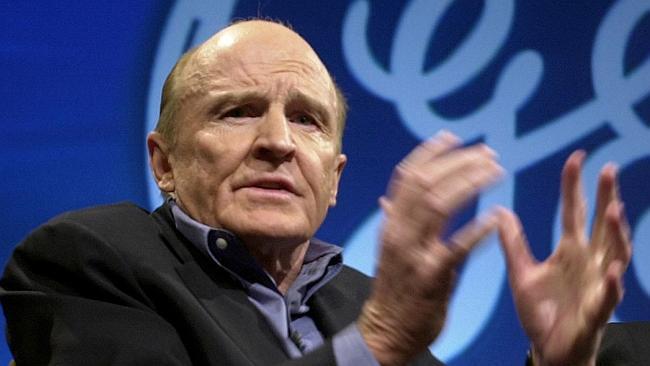Jack Welch and the rank-and-yank style go out of fashion
Jack Welch’s ruthless attitude to sacking staff is now unfashionable, but you can’t dispute its effectiveness.

The main job of the personnel manager used to be to keep the boss’s pay high and look after his super. Then, most personnel managers had the personality of Ivan the Terrible. Then someone came up with the idea that “people are our most valuable resource” and personnel managers became human resource managers.
This was just another step in the search for the management silver bullet, a search that continues today. Of course, it would be hard for any CEO to say that people are her least valuable resource or that “people are somewhere in the middle of value to us”.
Look, the fact is that in most organisations most people are commodities. From the 80s through to the start of the noughties GE boss Jack Welch popularised the rank-and-yank approach to HR. Basically, this means a company ranks its employees and fires the bottom 10 per cent every year. When Jack left GE, the company became softer and cuddlier. Rank and yank went. But as Forbes’ Peter Cohan wrote: “Of course, this kinder, gentler GE has been a catastrophe for shareholders — the stock is down 68 per cent from its September 2000 high of $US60.”
Even the public service is no longer safe. In John Howard’s first three prime ministerial years 30,000 of our servants were shown the door. Tony Abbott managed to dispense with 15,000 in his short time at the helm. These days Australians understand no job is permanent and to quote that old Greek rascal Heraclitus, “change is the only constant”.
There may be no correlation between warm and cuddly and a lower share price. Just like there may be no correlation between the best companies to work for, corporate culture, staff engagement, customer satisfaction, best CEOs and performance. Maybe staff is more engaged in high-performing companies than low-performing companies. If you want science rather than folklore then ask the question: “If I do this will that happen every time?”
At Intel, for instance, knowledge power is far more important than position power. Former CEO Andy Grove expected middle management to confront him and other senior executives and challenge their ideas. He believes if you are in top management, it’s because you were very good at something 10 years ago or 15 years ago, or 20 years ago.
One thing we do know is that the more employees know where a company is headed the more chance that they and the company will get there. Welch talks about exhaustive communication of a company’s mission (where it’s going) and its values (the behaviours that are going to get it there). “I’m not talking about putting a plaque on the lobby wall with the usual generic gobbledygook. I’m talking about a company’s leaders being so specific, granular, and vivid about mission and values that employees could recite them in their sleep.”
And letting people know how they are doing: “I’ve spoken to more than 500,000 people around the world and I always ask audiences, ‘How many of you know where you stand in your organisation?’ Typically, no more than 10 per cent raise their hands.”



